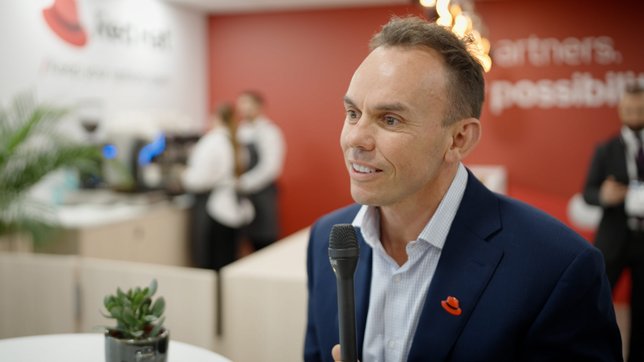How Microsoft Supports Michigan Medicine’s Modernisation
Microsoft’s mission is laser-focused on empowering every person and every organisation on the planet to achieve more.
But of course, it’s impossible to achieve more without good health, which is why empowering healthcare has become a central aspect of company strategy.
“It’s an exciting time to be working in healthcare,” says Tyler Bryson, CVP, US Health & Public Sector Industries at Microsoft.
“We're working with leading medical institutions to advance research and practise, and to use data, intelligence and collaboration tools to improve lives.”
Cloud migration unlocks new capabilities
Microsoft has a long-established partnership with Michigan Medicine, which looks after one of the largest healthcare complexes in the state.
Recently, the tech giant migrated Michigan Medicine’s electronic health records to the cloud, ensuring the latter is ideally positioned to take care of patients.
Complicating this process, however, is the complexity of the health centre’s integrated system, resulting in Microsoft building redundancy and resiliency into the existing Epic environment by delivering a cloud read-only environment – guarding against cyberattacks.
“Over time, this will move from being a redundant solution to being the core move to the cloud,” explains Bryson.
“This will enable new capabilities that only the cloud can provide, mostly in data, analytics and AI, which are key to unlocking improved efficiencies.”
Harnessing the power of AI
For years, healthcare providers have been leveraging big data systems to find patterns in their data to improve outcomes.
Without the cloud, though, crucial data has been dispersed across numerous silos, making it challenging for healthcare professionals to connect the dots.
Microsoft is working on the next phase, where the cloud and emerging technologies like generative AI help combine sources of data and find causality.
“These data sets are so massive they require new forms of intelligence to understand them – and that's where AI comes in,” adds Bryson.
“These technologies allow us to go way beyond what we've done in the past and think beyond correlations into the world of generative data, helping us understand how to improve the patient experience.”
Click HERE to read the full report
******
Make sure you check out the latest edition of Technology Magazine and also sign up to our global conference series - Tech & AI LIVE 2024
******
Technology Magazine is a BizClik brand
- Microsoft in Japan: $2.9bn Investment to Boost AI & CloudCloud & Cybersecurity
- Tech Leaders Launch AI Consortium to Upskill WorkforcesAI & Machine Learning
- Oracle Database@Azure Expansion: Committing to the CloudCloud Computing
- How Microsoft Supports Michigan Medicine’s ModernisationCloud Computing




